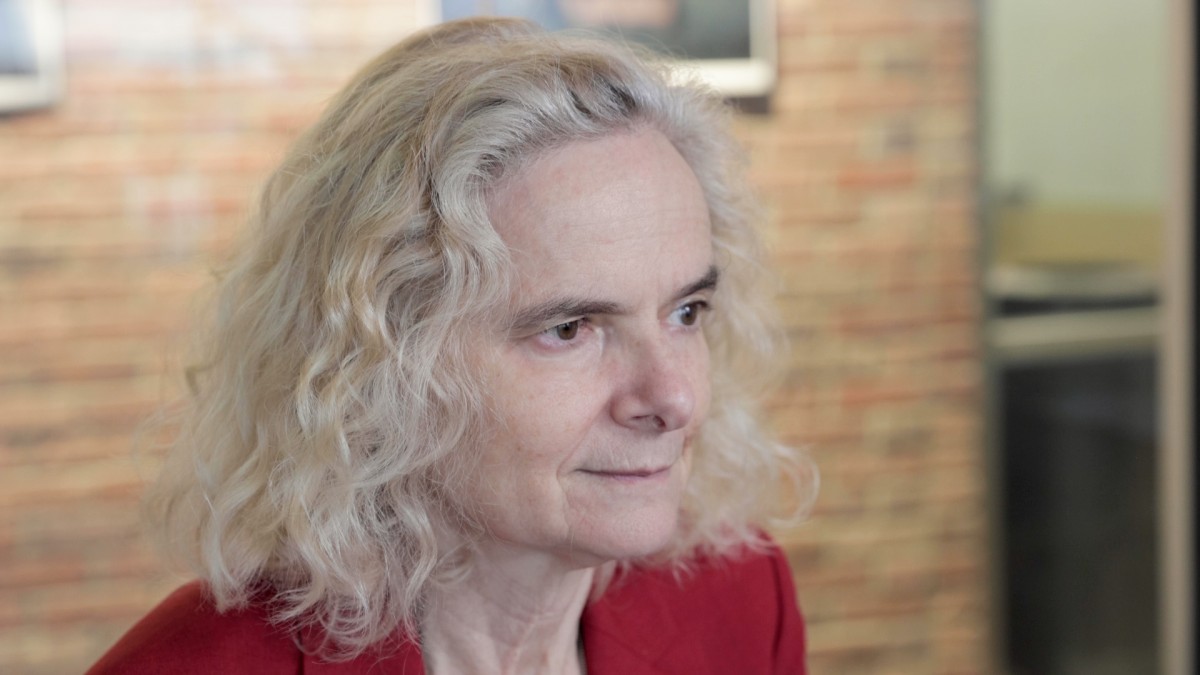I was slashing multiflora roses with a machete in a Cumberland Gap downpour when I felt some ancient animal instinct take over. Completely soaked through my clothes, I locked eyes with a friend and together we let out a primal scream.
My experience serving in the youth climate corps American Conservation Experience (ACE) this spring dug me out of deep pandemic depression. Reporting on COVID-19 from New York City for healthcare providers on the frontlines left me with sharp feelings of hopelessness, and I was desperately trying to connect to something outside of myself. With billionaires jetting off to space and social media giants escaping to alternative reality Metaworlds, I needed to ground myself here — on Earth.
I found this sense of stability through ACE, a non-profit professional development program tied to AmeriCorps. If the Biden Administration successfully boosts up 130 existing corps programs across the country, it could have a profound effect on following generations tasked with handling the repercussions of decades of global warming.
President Joe Biden’s $1.2 trillion infrastructure bill signed in November included a provision to establish a civilian climate corps program, intended to mobilize “the next generation of conservation and resilience workers,” while at the same time “conserving our public lands and waters, bolstering community resilience, and advancing environmental justice.”
The first U.S. Civilian Climate Corps (CCC) program was established by Franklin D. Roosevelt during the Great Depression in 1933. “CCC soldiers,” or the “forest army,” as they were sometimes called, were mostly made up of young, white men dispatched across the country to fight wildfires, develop national parks and string telephone lines. During its nine-year existence, the CCC provided 2.5 million young men with more than $2.4 billion of income from federal funds.

Boosting up the existing corps network today has the potential to reduce the unemployment rate among young people, revamp the nation’s national parks and unite our increasingly polarized country. Its success, however, hinges on its inclusivity and funding.
Diversity in recruitment needs to be at the forefront of the Biden Administration’s plan. The vast majority of my colleagues in ACE were white, college attendees. The conservation field overall has historically excluded people of color and people from impoverished communities. Meanwhile, these communities suffer the brunt of the climate crisis, such as exposure to air and water pollution.
In an earlier draft of the legislation, Representative Alexandria Ocasio-Cortez (D-N.Y.) and Senator Edward J. Markey (D-Mass.) called for half of climate service projects to be based in low-income communities and communities of color, but it’s unclear how the legislation will accomplish this. Legislators are also calling for the program to pay corps members a living wage of $15 an hour. (I received roughly $3.50 an hour working in ACE this summer, plus benefits like a Segal education award.)
Biden’s plan allocates $30 billion to the civilian climate corps program. Still, the bill is a scaled back version of the original legislation, and some Senators have called for more ambitious proposals of up to $132 billion to increase salaries and benefits for members.
In a recent analysis, every dollar the federal government spent on AmeriCorps programs led to $3.50 returned in tax revenue gains and savings. When benefits like education awards were included, the return was $17 for every dollar spent.
The language of existing Corps networks is based on a service mentality. We were volunteers, sacrificing a living wage to “serve” in the program. My job description said, “This opportunity is intended for environmental stewards who are eager to give back to our public lands.”

Incorporating more young people into this mindset could offset the warlike, sometimes violent, diction often associated with “fighting” climate change. More than that, it can connect us to each other and to the Earth that we are trying to save. The “contract hypothesis” in psychology posits that one way to reduce prejudice between groups is to get them in the same room.
My crew quickly became a family during my AmeriCorps term, cooking chili on a hot pot in the woods, slashing invasive plant species in a rainstorm and sharing a spade to dig a cat hole for our bathroom. Some of us were coming from liberal coastal cities like New York or California, and others had never left their conservative towns in Middle America before ACE. I had friends who were living in their cars before joining the program.
Regardless of where we came from, we found ourselves sharing a pot of coffee with small town farmers and folks within the National Park Service who taught us what it’s like to live in Appalachia. We sat in awe of a giant butterfly that landed on our shovel, and shared a moment of silence watching the sunset.
I slowly planted a new set of roots after feeling impossibly distanced from the comforts of my pre-pandemic life. Sitting around a fire — talking about cremation or drug policy or why Grimes should leave Elon Musk — I realized the distance across party lines was great, yes, but perhaps not impossible to traverse. Our actions felt ancient and communal, like we were a part of something bigger.
Not everyone will come out of a conservation corps with a profound shift in philosophy. But there was something about placing one foot after the other up that mountain in a downpour that fundamentally changed how I carried myself through life thereafter. My ACE term was a lesson in cherishing the finite nature of this moment and this planet.
I feel prepared now, perhaps not to “fight” the climate “war,” but rather to protect our planet like the generations of forest armies before me, and the generations to come.
Elizabeth Hlavinka is a science reporter from Texas. Her bylines have previously appeared in MedPage Today, Atlas Obscura, Texas Monthly, and Barcelona Metropolitan.



